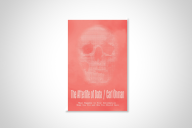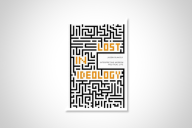You have /5 articles left.
Sign up for a free account or log in.
There will be a meeting tonight in Washington to celebrate the life of James Weinstein, the radical historian and publisher who died in Chicago last Thursday. The news was by no means unexpected. But the gathering is impromptu, and it will probably be small.
I suppose one thing we will all have in common is an inability to refer to the deceased as "James Weinstein." He was Jimmy. It's a fair guess that the turnout will include union organizers and progressive lobbyists and a few journalists. There will undoubtedly be an academic or two -- or several, if you count the defrocked, the ABD's, and the folks who otherwise decided (contra David Horowitz) that university life is not necessarily conducive to being a leftist.
Many people know that Weinstein's book The Decline of Socialism in America, 1912-1925 (first published in 1967 and reprinted by Rutgers University Press in 1984) started out as his dissertation. After all this time, it remains a landmark work in the scholarship on U.S. radicalism. But only this weekend, in talking with a mutual friend, did I learn that he never actually bothered to get the Ph.D.
Diagnosed with brain cancer, Jimmy spent the final weeks of his life in bed at home. He gave a series of interviews to Miles Harvey, an author and former managing editor at In These Times, the progressive magazine that Jimmy founded. The body of reminiscences is now being transcribed, and will join the collection of the Oral History Research Office at Columbia University.
"We both knew we were in a race against time," Miles said when we talked by phone over the weekend. "We mined a lot of interesting stuff. Jimmy was the Zelig of the American left."
The son of a prosperous businessman, he worked for years in electronics factories as a rank-and-file Communist union member. One of his anecdotes from that era is something of a legend -- has become, even, a part of history. One day a comrade asked Jimmy to give a ride to a taciturn fellow doing party business of an undisclosed nature. A few years later, he recognized the passenger as Julius Rosenberg. (Suffice it to say that Weinstein's future biographer will probably find a day-by-day account of his life during the early 1950s in the FBI surveillance files.)
Jimmy left the party in 1956, as part of a major exodus in the wake of Khrushchev's denunciation of the crimes of Stalin. He was never apologetic about his membership. But neither was he even slightly sentimental about it.
Well before massive documentation from the Russian archives settled the question, he dismissed the arguments of those who insisted that the American CP and the Soviet spy apparatus in the U.S. had to be considered as completely distinct entities. Any good party member would have been glad to help out, he said: "We would have considered it an honor." (Jimmy himself never received that distinction. According to Miles Harvey, the request that he chauffeur Julius Rosenberg has less to do with Jimmy's reliability as a revolutionary than it did with the fact that he was one of the Communists on hand who owned a car.)
The fact that he once said this at a public event, where non-leftists could hear him -- and that he did so during the Reagan administration, no less -- is still held against him in some circles.
The usual pattern, of course, is to abandon a rigid, dogmatic political ideology -- and then to adopt another one. People spend entire careers boldly denouncing other people for their own previous mistakes. It's easy work, and the market for it is steady.
Jimmy followed a different course. To begin with, he had never been all that keen on the ideological nuances of the Communist movement. He certainly knew his Marx and Lenin from studying at the party's famous Jefferson School of Social Science, in New York. But somehow the doctrinal points counted less than what he'd picked up from all those years as a union activist. At least that's the impression of his friend Jim McNeill, another former managing editor at In These Times. (McNeill, who is now an organizer for the Service Employees International Union.)
Nearing 30, Weinstein decided to go to graduate school to study history; and his instinct was to dig into an earlier period of American radicalism -- when it spoke an idiom that was much less purely Marxist, and a lot more influential. Up through World War I, the Socialists successfully fielded candidates in local elections and even get the occasional member into Congress. And Eugene Debs, a figure beloved even by those who didn't share his vision of the proletarian commonwealth, could win nearly a million votes for president while imprisoned for an antiwar speech.
Weinstein's research was, in short, a glimpse of an alternative that had been lost. It wasn't simply a matter of government repression, either. There were streaks of doctrinal puritanism, of apocalyptic revolutionism, that eventually proved corrosive. "In large part," as he later put it, "the failure of the American left has been internal." (Whether or not he made the connection isn't clear, but his own experience in the CP would tend to confirm this. As bad as McCarthyism had been for the party, members started quitting en masse once they had to face the truth about Stalin.)
Boiled down, his conclusions amounted to a demand for a major upheaval in the culture of the left. What it needed for the long term, in effect, was a healthy dose of pragmatism. It would also mean learning to think of reforms as part of the process of undermining the power of the profit system -- rather than implicitly seeing reforms as, at best, a kind of compromise with capitalism.
Had he done only that initial study of the Socialist Party (finished in 1962, though only published five years later), Jimmy Weinstein would merit a small but honorable spot in the history of the American left. But in fact he did a lot more.
Today's academic left is very much a star system. Jimmy never had a place in it. If that bothered him, he did a good job of keeping quiet about it. But just for the record, it's worth mentioning that he was present at the creation.
He was part of the group in Madison, Wisconsin that published Studies on the Left between 1959 and 1967. It was the first scholarly journal of Marxist analysis to appear in the United States since at least the end of World War II, and an important point of connection between the American New Left and international currents in radical thought. (The first translation of Walter Benjamin's "The Work of Art in the Age of Mechanical Reproduction," for example, appeared in Studies.)
Jimmy's brief memoir of this period can be found in a volume edited by the radical historian Paul Buhle called History and the New Left: Madison, Wisconsin, 1950-1970 (Temple University Press, 1990). There has long been a tendency to treat the intellectual history of the American left as unfolding primarily in New York City. This is understandable, in some ways, but it introduces gross distortions. It's worth remembering that one of the major publications serving to revitalize radical scholarship was the product of a group of graduate students at the University of Wisconsin. It appears that Buhle's anthology is now out of print. But what's more surprising, I think, is that more research hasn't been done on "the Madison intellectuals" in the meantime.
In keeping with Miles Harvey's characterization of Weinstein as "the Zelig of the American left," we next find him at the Chicago convention of Students for a Democratic Society in 1969. That was the one where -- just as the antiwar movement was starting to get a hearing on Main Street USA -- rival factions waved copies of the Little Red Book in the air and expelled one another. (Want evidence that the left's deepest wounds are self-inflicted? There you go.)
Repelled by the wild-eyed hysteria and terrorist romanticism of the Weather Underground (of which, one of his cousins was a member), Jimmy helped start another journal, Socialist Revolution, which was always more cerebral than its up-against-the-wall title might suggest. In 1978, it changed its name to Socialist Review. (This abandonment of "revolution" inspired a certain amount of hand-wringing in some quarters.) It was the venue where, in 1985, Donna Haraway first published her "Cyborg Manifesto." For years afterward, the rumor went around that SR was about to drop "Socialist" from its title, to be replaced by "Postmodern." But in fact it continues now as Radical Society -- a distant descendant of its ancestor, by now, though it still bears a family resemblance to the publications that Jimmy worked on long ago.
Jimmy's last major venture as a publisher -- the culmination of his dream of converting the lessons of radical history into something practical and effective, here and now -- was In These Times, which started as a newspaper in 1976 and turned into a magazine sometime around 1990. A collection of articles from the magazine's first quarter century appeared in 2002 as the book Appeal to Reason -- a title echoing the name of the most widely circulated newspaper of the old Socialist Party.
Pat Aufderheide, now a professor of communications at American University, was ITT's culture editor from 1978 through 1982. She writes about the experience in her book The Daily Planet: A Critic on the Capitalist Culture Beat (University of Minnesota Press, 2000). A whole generation of people were entranced by the countercultural idea that "the personal is the political" -- or its academic doppelganger, the Foucauldian notion that power was everywhere and inescapable. These were recipes, she notes, for "self-marginalization and political fundamentalism" on the left.
"For In These Times," writes Aufderheide, "politics is the prosaic complex of institutions, structures and actions through which people organize consciously for social change.... Richard Rorty would put it in the reformist left category. It is read largely by leftists who do organizing or other practical political work, through labor unions, universities and schools, churches, nonprofit organizations and local and regional government. These are smart people, many of whom are not intellectuals, and who mostly come home late and tired."
The importance of reaching that public -- indeed, the very possibility of doing so -- tends to be overlooked by many people engaged in left-wing academic discourse. ("Our comrades in armchairs," as activists sometimes put it.)
In her book, Aufderheide recalls dealing with "a vocal contingent of academics" who were "always ready to pounce on lack of subtlety, creeping cheerleading, or sentimentality" in the magazine's cultural coverage. "Their critical acuteness, however, often seemed exercised for the satisfaction of intellectual one-upmanship," she writes. "When I begged them to write, to point me to other writers, to serve on the board, there was almost always a stunned silence."
The problem is self-perpetuating, Perhaps it comes down to a lack of good examples. And in that regard, Jimmy's death is more than a personal loss to his friends and family.
It's worth mentioning that, along the way, he wrote a number of other books, with The Long Detour: The History and Failure of the American Left (Westview, 2003) being his last. It was also his favorite, according to Miles Harvey, whose series of deathbed interviews will, in time, serve as the starting point for some historical researcher who has perhaps not yet heard of James Weinstein.
To be candid, I didn't care for his final book quite as much as the one he published in 1975 called Ambiguous Legacy: The Left in American Politics. The books are similar in a lot of ways. I'm not sure that my preference for one over the other is entirely defensible.
But it was Ambiguous Legacy that Jimmy inscribed when we met, about 10 years ago. My copy of his first book, the one on the Socialist Party, he dedicated "with hope for our future." Only later did I look at the other volume. Beneath the greeting -- and before his signature -- he wrote: "The legacy is more ambiguous than ever."








